Organic THCA Flower Farming: Oregon's Sustainable Hemp Practices
Oregon has emerged as a leader in sustainable agriculture, and nowhere is this more evident than in the state's approach to hemp cultivation. As consumers increasingly demand clean, environmentally responsible products, Oregon's hemp farmers have responded by pioneering innovative organic cultivation methods that produce exceptional organic THCA flower Oregon while maintaining the highest standards of environmental stewardship.
The Pacific Northwest's unique climate, combined with Oregon's progressive agricultural policies and commitment to sustainability, has created the perfect environment for cultivating premium hemp products. From the coastal valleys to the high desert regions, Oregon's diverse microclimates offer ideal conditions for both indoor and outdoor cultivation of THCA-rich hemp flowers.
The Foundation of Sustainable Hemp Farming
Sustainable hemp farming represents a holistic approach to agriculture that prioritizes environmental health, economic viability, and social responsibility. In Oregon, this philosophy has become deeply embedded in the hemp cultivation community, with farmers adopting practices that work in harmony with natural ecosystems rather than against them.
The concept of sustainable hemp farming extends far beyond simply avoiding synthetic pesticides and fertilizers. It encompasses water conservation, soil health management, biodiversity preservation, carbon sequestration, and the creation of resilient agricultural systems that can adapt to changing environmental conditions.
Oregon's hemp farmers understand that sustainability is not just an environmental imperative but also a business necessity. As consumers become more educated about the products they purchase, demand for clean, responsibly grown hemp continues to surge. This market shift has created strong economic incentives for farmers to adopt and maintain sustainable practices.
Organic Certification and Standards
The journey toward producing certified organic hemp cultivation begins long before the first seed is planted. Oregon's hemp farmers must navigate a complex regulatory landscape that includes both federal organic standards and state-specific hemp regulations.
Organic certification requires farmers to demonstrate that their cultivation practices meet strict criteria established by the United States Department of Agriculture (USDA). These standards prohibit the use of synthetic pesticides, herbicides, fungicides, and fertilizers. Instead, farmers must rely on natural inputs and biological pest management strategies to maintain crop health and productivity.
The certification process is rigorous and ongoing. Farmers must maintain detailed records of all inputs used in their cultivation operations, document their soil management practices, and submit to regular inspections by certified organic inspectors. This level of scrutiny ensures that consumers can trust the organic certification hemp products they purchase.
Beyond the basic requirements for organic certification, many Oregon hemp farmers go above and beyond these standards, implementing additional sustainable practices that further enhance the environmental benefits of their operations. These might include cover cropping, composting, integrated pest management, and renewable energy utilization.
Pesticide-Free Cultivation Methods
The commitment to producing pesticide free THCA Oregon requires farmers to develop sophisticated understanding of plant biology, soil science, and ecological relationships. Without the safety net of synthetic pesticides, organic farmers must rely on prevention, biological controls, and cultural practices to manage pests and diseases.
Integrated Pest Management (IPM) forms the cornerstone of organic hemp cultivation. This approach emphasizes understanding pest life cycles, encouraging beneficial insects, and creating conditions that favor plant health over pest proliferation. Oregon's hemp farmers have become experts at identifying early signs of pest pressure and implementing targeted interventions that address problems without disrupting the broader ecosystem.
Companion planting represents another crucial strategy in pesticide-free cultivation. By interspersing hemp plants with carefully selected companion species, farmers can create natural pest deterrents, improve soil health, and enhance overall biodiversity. Common companion plants in Oregon hemp operations include marigolds, basil, lavender, and various cover crops that provide nitrogen fixation and soil protection.
Beneficial insect populations play a vital role in maintaining ecological balance in organic hemp farms. Farmers actively encourage populations of predatory insects like ladybugs, lacewings, and parasitic wasps that naturally control pest populations. This might involve creating insectary strips, maintaining diverse plant communities, and avoiding practices that would harm beneficial species.
Soil Health and Regenerative Practices
The foundation of any successful organic hemp operation lies in healthy, living soil. Oregon's hemp farmers have embraced regenerative agriculture THCA practices that not only maintain soil health but actively improve it over time.
Composting forms a central component of soil health management in organic hemp cultivation. Farmers create nutrient-rich compost from organic matter, creating a slow-release fertilizer that feeds both plants and soil microorganisms. This approach contrasts sharply with synthetic fertilizers, which provide immediate nutrition but can disrupt soil biology over time.
Cover cropping represents another essential practice in regenerative hemp farming. During fallow periods, farmers plant diverse cover crop mixtures that prevent soil erosion, suppress weeds, add organic matter, and provide habitat for beneficial insects. These cover crops might include nitrogen-fixing legumes, deep-rooted plants that break up soil compaction, and species that add specific nutrients to the soil profile.
Mycorrhizal fungi relationships are actively cultivated in organic hemp operations. These beneficial fungi form symbiotic relationships with hemp roots, extending the plant's ability to access nutrients and water while providing the fungi with carbohydrates. Organic farmers protect and encourage these relationships through minimal tillage practices and the use of mycorrhizal inoculants.
Soil testing and monitoring are conducted regularly to track improvements in soil health over time. Parameters like organic matter content, microbial diversity, nutrient availability, and pH are carefully monitored to ensure that cultivation practices are having the desired positive impact on soil ecosystems.
Indoor THCA Flower Cultivation
Indoor THCA flower cultivation offers unprecedented control over growing conditions, allowing farmers to optimize every aspect of the plant's environment. Oregon's indoor hemp facilities represent the cutting edge of sustainable cultivation technology, incorporating renewable energy sources, water recycling systems, and precision environmental controls.
LED lighting technology has revolutionized indoor hemp cultivation, providing full-spectrum light while consuming significantly less energy than traditional high-intensity discharge lamps. Oregon's indoor growers have been early adopters of this technology, reducing their carbon footprint while maintaining or improving flower quality and yields.
Climate control systems in Oregon's indoor facilities are designed for maximum efficiency. Advanced HVAC systems maintain optimal temperature and humidity levels while minimizing energy consumption. Many facilities incorporate heat recovery systems that capture waste heat from lighting and other equipment to reduce overall energy requirements.
Water management in indoor cultivation requires careful attention to conservation and recycling. Hydroponic and aeroponic systems allow for precise nutrient delivery while minimizing water waste. Runoff water is typically captured, filtered, and recycled back into the system, dramatically reducing overall water consumption compared to traditional irrigation methods.
Organic inputs in indoor cultivation present unique challenges and opportunities. Indoor growers must carefully select organic fertilizers and pest management products that are compatible with controlled environment systems. This might include beneficial microorganisms, organic nutrient solutions, and biological pest control agents that thrive in indoor conditions.
Outdoor THCA Flower Production
Outdoor THCA flower cultivation harnesses the power of natural systems while implementing sustainable farming practices. Oregon's diverse climate zones provide excellent conditions for outdoor hemp cultivation, from the mild coastal regions to the high desert areas east of the Cascade Mountains.
Site selection for outdoor cultivation considers multiple factors including soil quality, water availability, sun exposure, and environmental conditions. Oregon's hemp farmers carefully evaluate potential growing sites to ensure they can support healthy plant growth while minimizing environmental impact.
Water conservation is particularly important in outdoor cultivation, especially in Oregon's drier regions. Farmers implement efficient irrigation systems, mulching strategies, and drought-resistant varieties to minimize water usage while maintaining plant health. Drip irrigation systems deliver water directly to plant roots, reducing evaporation and water waste.
Natural pest management in outdoor settings relies heavily on encouraging biodiversity and creating habitat for beneficial organisms. This might include maintaining hedgerows, creating pollinator gardens, and preserving natural areas that support predatory insects and other beneficial wildlife.
Weather protection strategies help outdoor growers manage Oregon's variable climate conditions. This might include row covers, windbreaks, and hoop houses that provide protection from extreme weather while maintaining the benefits of outdoor cultivation.
Greenhouse THCA Flower Systems
Greenhouse THCA flower cultivation represents a middle ground between indoor and outdoor production, offering environmental control while utilizing natural sunlight. Oregon's greenhouse hemp operations have pioneered innovative approaches that maximize the benefits of both cultivation methods.
Passive solar design principles are commonly employed in Oregon's hemp greenhouses. Structures are oriented and designed to capture maximum winter sunlight while providing summer shading. Thermal mass materials help regulate temperature fluctuations, reducing the need for supplemental heating and cooling.
Ventilation systems in hemp greenhouses are designed to maintain optimal growing conditions while conserving energy. Natural ventilation systems utilize temperature and wind-driven air movement to maintain air circulation, while automated systems adjust venting based on environmental conditions.
Supplemental lighting in greenhouses typically utilizes energy-efficient LED systems that provide additional light during periods of low natural light. These systems are often controlled by light sensors that automatically adjust output based on available natural light levels.
Integrated pest management in greenhouse settings combines the benefits of controlled environment cultivation with biological pest control methods. Beneficial insects can be more easily introduced and maintained in greenhouse environments, providing effective pest control without chemical inputs.
Clean Growing Practices and Quality Assurance
The commitment to clean growing THCA extends throughout the entire cultivation process, from seed to harvest. Oregon's hemp farmers have developed comprehensive quality assurance programs that ensure their products meet the highest standards for purity and potency.
Seed selection and genetics play crucial roles in producing high-quality THCA flower. Oregon growers work with reputable seed suppliers and often maintain their own breeding programs to develop varieties that are well-suited to local growing conditions and market demands.
Cultivation monitoring involves regular plant health assessments, environmental monitoring, and pest scouting. Early detection of potential problems allows for swift intervention using organic-approved methods, preventing issues from becoming serious problems that might compromise crop quality.
Harvest timing is critical for maximizing THCA content and overall flower quality. Oregon growers use various methods to determine optimal harvest timing, including trichome examination, cannabinoid testing, and visual assessment of flower maturity.
Post-harvest handling follows strict protocols to maintain product quality and prevent contamination. This includes proper drying techniques, curing processes, and storage conditions that preserve cannabinoid content and prevent mold or other quality issues.
Environmental Benefits of Organic Hemp Farming
The environmental advantages of eco friendly THCA cultivation extend far beyond the immediate growing area. Organic hemp farming practices contribute to broader environmental health through multiple mechanisms.
Carbon sequestration is a significant benefit of hemp cultivation. Hemp plants are prolific carbon absorbers, capturing atmospheric CO2 and storing it in plant tissues and soil organic matter. When combined with regenerative agriculture practices, hemp cultivation can actually result in net carbon storage, helping to mitigate climate change.
Biodiversity enhancement occurs naturally in organic hemp operations. By avoiding synthetic pesticides and maintaining diverse plant communities, organic farms provide habitat for a wide range of beneficial insects, birds, and other wildlife. This biodiversity contributes to ecosystem resilience and natural pest control.
Water quality protection is another important benefit of organic cultivation practices. By eliminating synthetic fertilizers and pesticides, organic hemp farms prevent these chemicals from entering groundwater and surface water systems. Additionally, healthy soils with high organic matter content are better able to filter and retain water, reducing erosion and nutrient runoff.
Soil health improvement through organic practices creates lasting environmental benefits. Healthy soils support diverse microbial communities, improve water infiltration and retention, and are more resilient to erosion and extreme weather events.
The Economics of Sustainable Hemp Farming
The transition to sustainable hemp farming represents both challenges and opportunities for Oregon growers. While organic certification and sustainable practices may require higher initial investments and more intensive management, they also open access to premium markets and can result in long-term cost savings.
Market premiums for organic and sustainably grown hemp products reflect consumer willingness to pay for clean, responsibly produced goods. These premiums help offset the additional costs associated with organic certification and sustainable farming practices.
Input cost reductions over time represent a significant economic benefit of sustainable farming. By building soil health and encouraging beneficial ecosystems, farmers can reduce their dependence on external inputs, leading to lower operating costs over time.
Risk mitigation is another economic advantage of sustainable farming practices. Diverse cropping systems, healthy soils, and robust ecosystems are more resilient to pests, diseases, and extreme weather events, reducing the risk of crop losses.
Brand differentiation in the marketplace allows sustainable hemp producers to distinguish their products from conventionally grown alternatives. This differentiation can lead to increased customer loyalty and market share.
Innovation in Natural Hemp Farming
Oregon's commitment to natural hemp farming Oregon has driven continuous innovation in cultivation techniques and technologies. Farmers are constantly developing new approaches to improve efficiency, quality, and sustainability.
Precision agriculture technologies are being adapted for hemp cultivation, allowing farmers to optimize inputs and monitor crop health with unprecedented accuracy. This might include soil sensors, drone-based crop monitoring, and GPS-guided application equipment.
Biological inputs continue to evolve, with new products and techniques being developed to enhance plant health and productivity. This includes advanced microbial inoculants, plant growth promoting bacteria, and innovative organic fertilizer formulations.
Automation technologies are being developed specifically for hemp cultivation, including automated transplanting systems, robotic harvesting equipment, and environmental control systems that respond to plant needs in real-time.
Research partnerships between farmers, universities, and private companies are driving continued innovation in sustainable hemp cultivation. These collaborations are developing new varieties, cultivation techniques, and processing methods that improve both sustainability and product quality.
THCA Flower Cultivation Techniques
THCA flower cultivation requires specialized knowledge and techniques to maximize the production of this valuable cannabinoid while maintaining organic growing standards. Oregon growers have developed sophisticated approaches to optimize THCA production.
Strain selection is crucial for maximizing THCA content. Growers work with genetics that have been specifically selected for high THCA production while maintaining the plant characteristics needed for successful organic cultivation.
Environmental optimization involves carefully controlling temperature, humidity, light intensity, and photoperiod to encourage maximum THCA production. Different cultivation phases may require different environmental conditions to optimize cannabinoid synthesis.
Nutrient management for THCA production requires understanding the relationship between plant nutrition and cannabinoid synthesis. Organic growers must provide balanced nutrition throughout the growing cycle while avoiding nutrient deficiencies that might reduce THCA production.
Stress management techniques can actually enhance THCA production when applied correctly. Controlled environmental stresses during specific growth phases can trigger increased cannabinoid production without compromising overall plant health.
Premium Indoor THCA Production
The production of premium indoor THCA represents the pinnacle of controlled environment cultivation. Oregon's indoor facilities combine cutting-edge technology with organic growing principles to produce exceptional quality products.
Environmental precision in premium indoor facilities allows for optimization of every aspect of the growing environment. Temperature, humidity, CO2 levels, and light spectra are precisely controlled to create ideal conditions for THCA production.
Quality control measures in premium indoor operations include regular testing for cannabinoid content, terpene profiles, and contaminants. This ensures that products meet the highest standards for potency and purity.
Harvest optimization involves timing the harvest to maximize THCA content while ensuring optimal terpene preservation. This requires careful monitoring of trichome development and cannabinoid testing to determine the perfect harvest window.
Post-harvest processing for premium indoor THCA requires specialized techniques to preserve cannabinoid and terpene content. This includes controlled drying environments, proper curing techniques, and storage conditions that maintain product quality over time.
Chemical-Free THCA Production
The commitment to chemical free THCA production requires comprehensive understanding of natural cultivation methods and biological processes. Oregon growers have mastered these techniques to produce clean, pure products without synthetic inputs.
Natural pest management strategies replace synthetic pesticides with biological controls, beneficial insects, and cultural practices that prevent pest problems. This approach requires more knowledge and observation but results in cleaner products and healthier ecosystems.
Organic disease prevention focuses on creating conditions that favor plant health over pathogen development. This includes proper spacing, air circulation, soil health management, and the use of beneficial microorganisms that suppress disease-causing organisms.
Natural fertility management relies on organic matter, compost, and biological processes to provide plant nutrition. This approach supports soil health while providing the nutrients needed for healthy plant growth and cannabinoid production.
Residue testing ensures that chemical-free products truly meet their claims. Regular testing for pesticide residues, heavy metals, and other contaminants provides verification that cultivation practices are achieving their intended results.
The Future of Sustainable Hemp Farming in Oregon
Oregon's position as a leader in sustainable hemp cultivation continues to evolve as new technologies, techniques, and market demands emerge. The state's farmers are well-positioned to continue innovating and setting standards for the industry.
Climate change adaptation strategies are becoming increasingly important as weather patterns shift and extreme events become more common. Oregon's hemp farmers are developing resilient cultivation systems that can adapt to changing conditions while maintaining productivity and sustainability.
Technology integration will continue to play a larger role in sustainable hemp cultivation. Advanced sensors, artificial intelligence, and automation technologies will help farmers optimize their operations while reducing environmental impact.
Market evolution toward premium, sustainable products suggests continued growth opportunities for Oregon's organic hemp producers. As consumers become more sophisticated in their product choices, demand for clean, responsibly grown hemp is expected to increase.
Research and development efforts continue to focus on improving cultivation techniques, developing new varieties, and enhancing product quality. Oregon's universities, research institutions, and private companies are actively working to advance the science of sustainable hemp cultivation.
Conclusion
Oregon's commitment to organic and sustainable THCA flower farming represents more than just an agricultural approach – it embodies a philosophy of environmental stewardship, consumer health, and long-term sustainability. The state's hemp farmers have demonstrated that it is possible to produce exceptional quality products while maintaining the highest standards of environmental responsibility.
The practices pioneered in Oregon are setting standards for the hemp industry nationwide. From innovative pest management strategies to cutting-edge indoor cultivation technologies, Oregon's growers continue to push the boundaries of what is possible in sustainable agriculture.
As consumer demand for clean, responsibly produced hemp products continues to grow, Oregon's sustainable farming practices position the state's growers to meet this demand while contributing to broader environmental and social goals. The success of these operations demonstrates that sustainability and profitability can go hand in hand, creating a model for the future of agriculture.
The commitment to producing high-quality, organic THCA flower Oregon through sustainable practices represents an investment in the future – not just for individual farms and businesses, but for the health of our communities and environment. As this industry continues to evolve, Oregon's leadership in sustainable hemp cultivation will undoubtedly continue to influence and inspire growers across the nation and around the world.

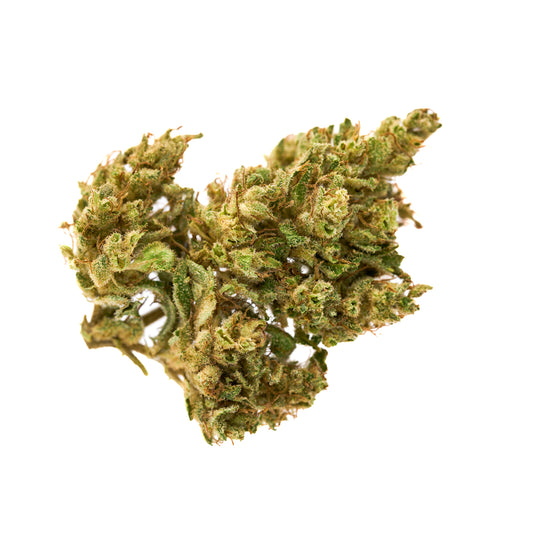
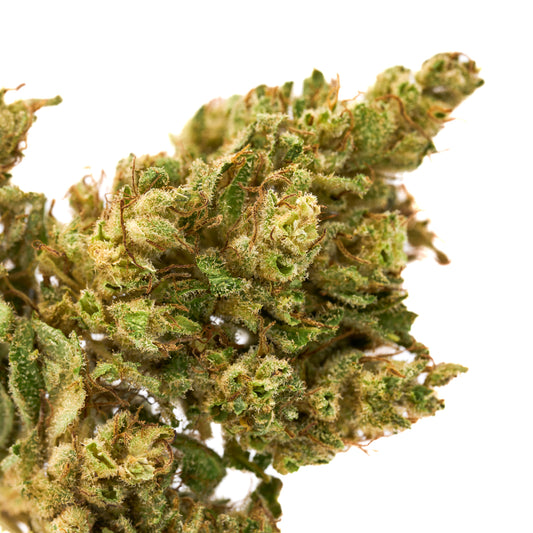
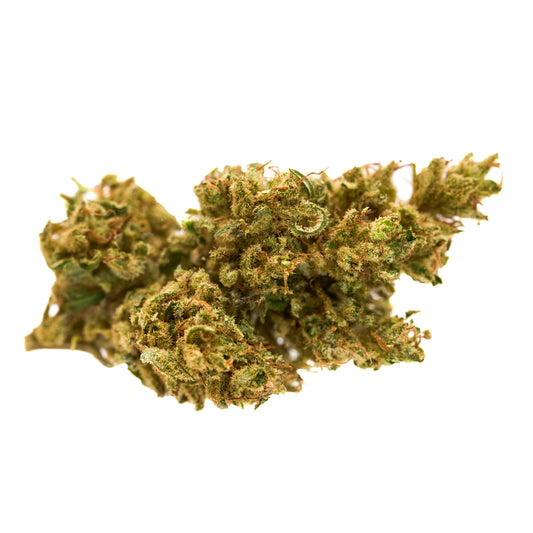
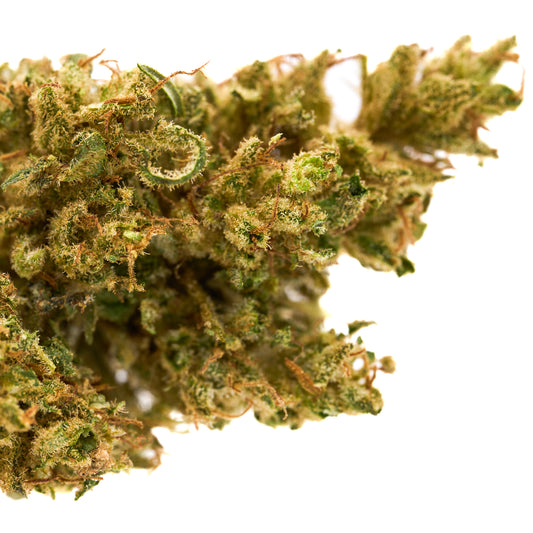
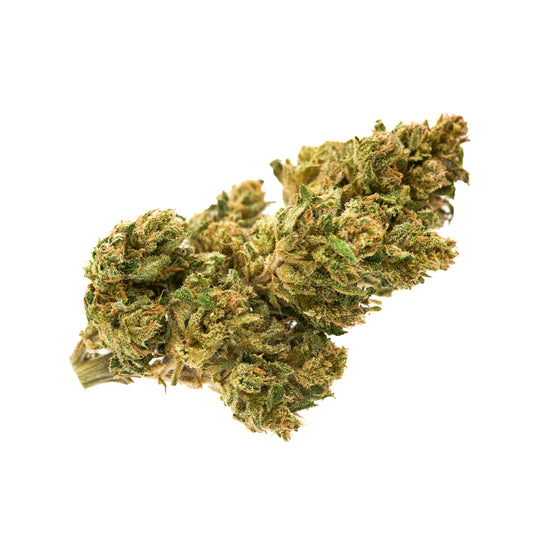
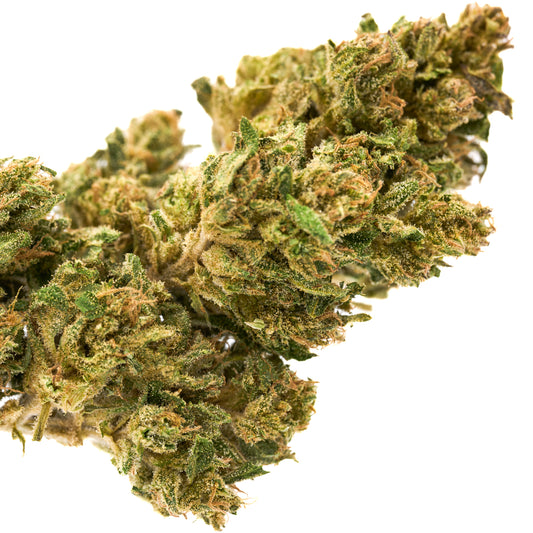



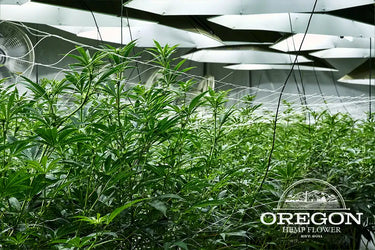

Leave a comment
Please note, comments need to be approved before they are published.